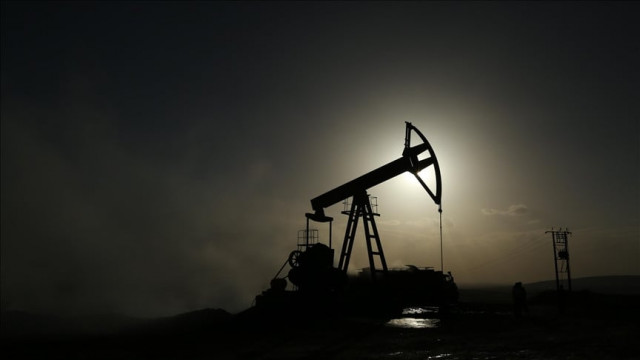Oil, gas production drops on fields’ shutdown
Two oil and gas fields closed for annual maintenance

Pakistan’s oil and gas production dropped 5% and 3.5% respectively during the week ended on Thursday as two fields were shut down for annual overhaul.
The planned turnaround of the oil and gas fields occurred at a time when the country was suffering from energy crisis like prolonged power outages for residential, industrial and commercial consumers, mainly due to sharp increase in prices of coal and liquefied natural gas (LNG) in world markets.
Experts have anticipated an increase in the duration of load-shedding across the country.
The oil production dropped almost 5% to 68,520 barrels per day (bpd) in the week ended May 19 compared to 72,015 bpd in the prior week, Arif Habib Limited (AHL) reported citing Pakistan Petroleum Information Service (PPIS) data.
Similarly, the gas output dropped 3.5% on a week-on-week basis to 3,333 million cubic feet per day (mmcfd) compared to 3,450 mmcfd in the previous week.
“According to PPIS, the Dakhni and Maramzai fields are undergoing annual turnaround (ATA) due to which overall oil and gas production declined week-on-week,” AHL said.
“Likewise, gas production from Mari field depicted a decline owing to ATA at Foundation Power Company Deharki Limited.”
The duration of ATA depends on the nature of overhaul. It may take two weeks to six weeks for the fields to return to production, it estimated.
The turnaround, however, may most probably help increase production from the fields when they come back on line.
Apart from the temporary drop in output from the fields, the overall production has continued to decline significantly due to 8-9% annual depletion in the country’s energy reserves.
Giving his suggestions to overcome the growing energy crisis and reduce the import bill, Alpha Beta Core CEO Khurram Schehzad said the government should reduce the working week to four days and half of that should be work from home for both public and private sectors. “It will save a lot of transport and energy costs.”
“Manage a balanced load-shedding plan … 8-10 hours of load-shedding per day saves roughly $125 million,” he said.
The government should transfer more cash to the Benazir Income Support Programme (BISP) accountholders and unwind subsidies for petrol pumps. “Levy more taxes on petrol and cross-subsidise diesel from there,” he said.
It should also consider issuing prepaid cards for petrol subsidy to register the bike owners, he said.
The country’s oil and gas reserves have continued to drop amid no discovery of significant new reserves over the past two decades.
The depletion of reserves and the surge in demand have led to increase in nation’s reliance on the imported fuels.
Published in The Express Tribune, May 20th, 2022.
Like Business on Facebook, follow @TribuneBiz on Twitter to stay informed and join in the conversation.


















COMMENTS
Comments are moderated and generally will be posted if they are on-topic and not abusive.
For more information, please see our Comments FAQ